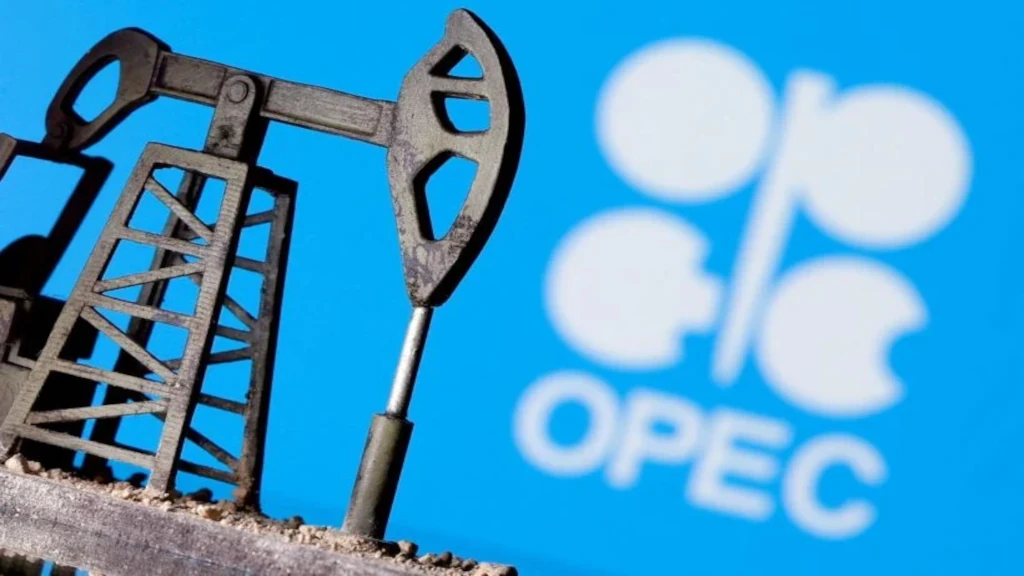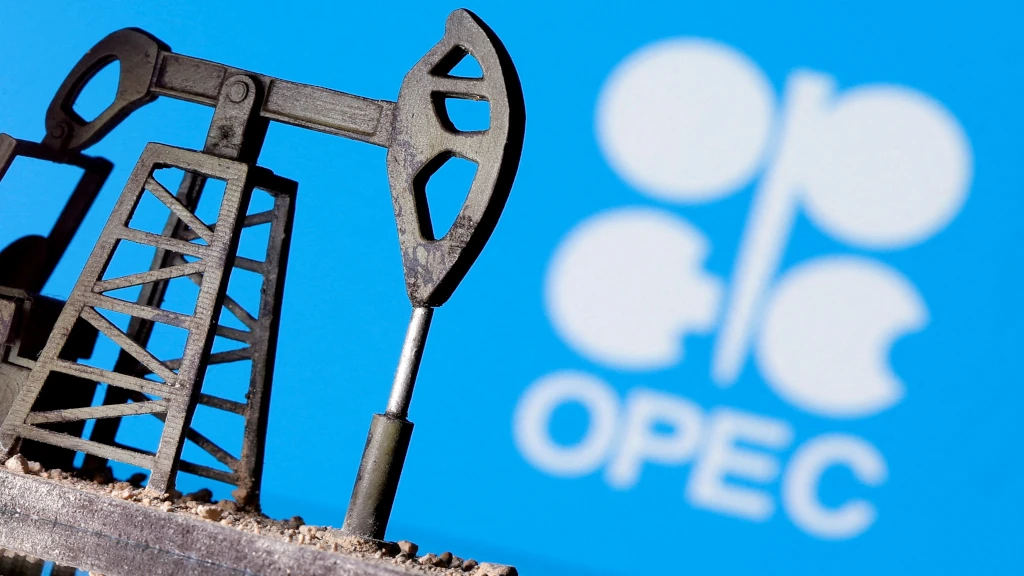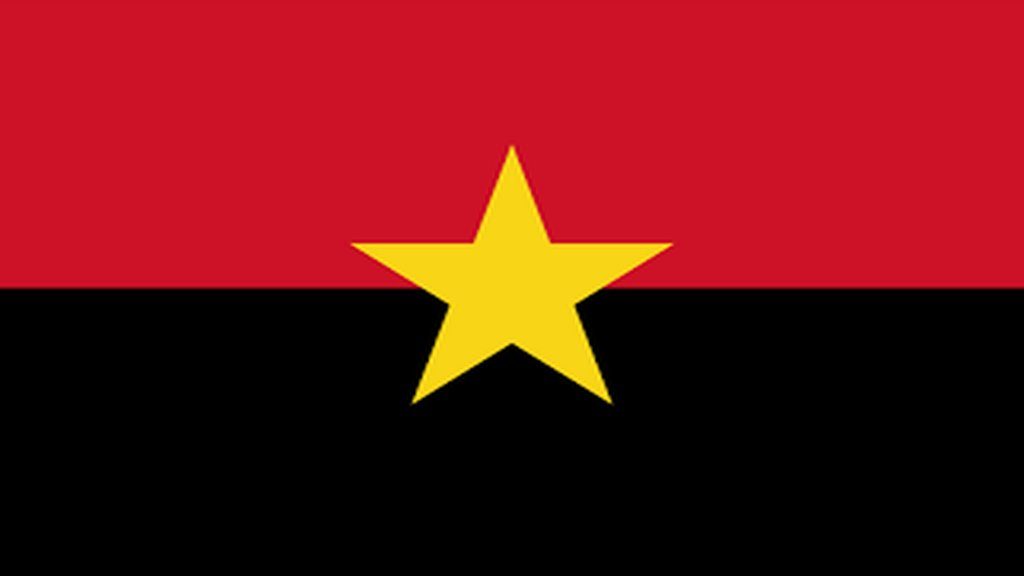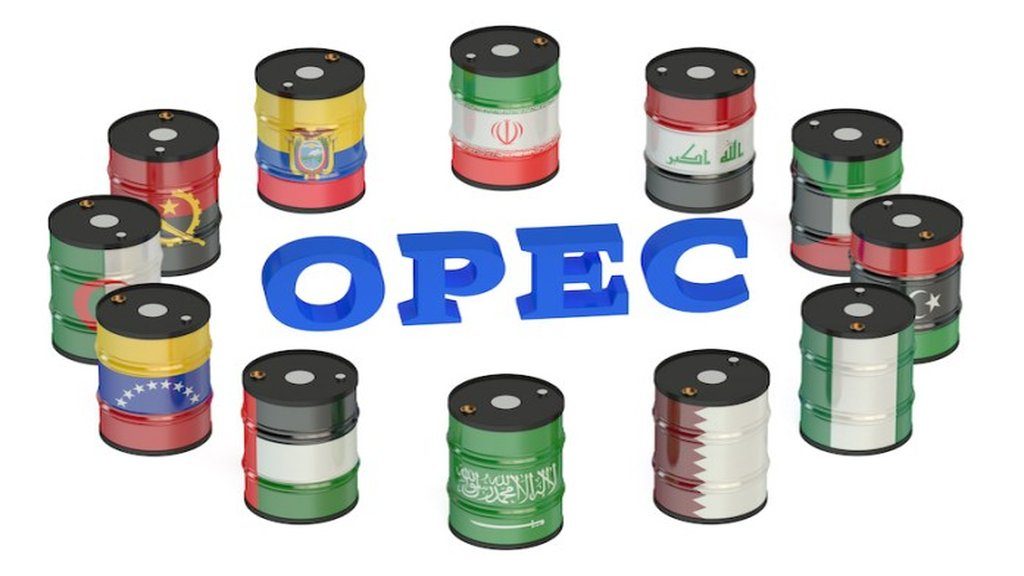A 3D-printed oil pump jack is seen in front of displayed OPEC logo in this illustration picture, April 14, 2020. REUTERS/Dado Ruvic/File Photo
LONDON, Jan 5 (Reuters) – OPEC DECEMBER OIL OUTPUT RISES BY 70,000 BPD FROM NOVEMBER TO 27.88 MILLION BPD AHEAD OF 2024 CUTS, ANGOLA EXIT – REUTERS SURVEY
OPEC oil output rose in December, a Reuters survey found on Friday, as increases in Iraq, Angola and Nigeria offset ongoing cuts by Saudi Arabia and other members of the wider OPEC+ alliance to support the market.
The Organization of the Petroleum Exporting Countries pumped 27.88 million barrels per day (bpd) last month, the survey found, up 70,000 bpd from November. Output is down more than 1 million bpd from the same month a year ago. PRODN-TOTAL
The boost comes ahead of further OPEC+ cuts in 2024 and Angola’s exit from OPEC, which are set to lower January output and market share. OPEC’s market share has already been falling due to output restraint and the departure of some members.
In December, the biggest increases of 60,000 bpd came from Iraq and Angola, which both boosted exports, the survey found.
Nigeria also shipped more crude abroad without, as yet, beginning oil products output at its new Dangote refinery.
The Reuters survey, which aims to track supply to the market, is based on shipping data provided by external sources, Refinitiv Eikon flows data, information from companies that track flows such as Petro-Logistics and Kpler and information provided by sources at oil companies, OPEC and consultants.
Source: CNBC Africa, 5th January 2024
 afric-Invest
afric-Invest



